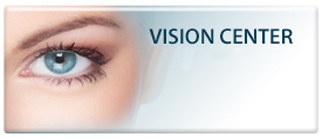Are you having trouble seeing things up close as you get older? This is a natural eye condition called presbyopia that occurs as your eyes’ lenses lose flexibility. Everyone experiences some degree of vision loss due to age, but presbyopia affects everyone’s eyes differently.
Presbyopia can’t be prevented and usually starts occurring in your early to mid-40s.
Signs that you are developing presbyopia include:.
- Holding books, newspapers or magazines at arm’s length
- Blurred vision when looking at objects up close
- Inability to read small print that you could once see
- Eyestrain or headaches when working on something up close
Presbyopia can begin developing as early as 35 and typically stops at around age 65 in our Southaven patients. During this time, your prescription needs can change monthly, yearly or every few years, so it’s important to schedule regular eye exams..
Treating Presbyopia
Presbyopia is easy to treat using corrective lenses or refractive surgery. If you have otherwise normal eyesight, you can simply use reading glasses when doing close up work. Many patients, however, have other vision problems such as myopia, hyperopia and astigmatism. Those with farsightedness may simply be able to remove corrective lenses to read. Those who are nearsighted or have astigmatism have many options for correcting both prescriptions separately or together. Depending on your vision and lifestyle needs, we’ll recommend one or more of these treatment options..
- Bifocal, trifocal or progressive lens glasses
- Bifocal, trifocal or multifocal contact lenses
- Contact lenses combined with reading glasses
- Refractive surgery
- Surgically implantable lenses
- Monovision
What Is Monovision?
Monovision is a vision correction technique that corrects the vision in in each of your eyes differently. One eye is corrected for myopia or nearsightedness while the other eye’s vision is corrected for presbyopia. It allows you to see both close up and far away without having to use reading glasses. It can, however, reduce depth perception abilities. Monovision can be achieved using contact lenses, but is also becoming an increasingly popular option for older patients undergoing refractive surgery procedures like LASIK..


